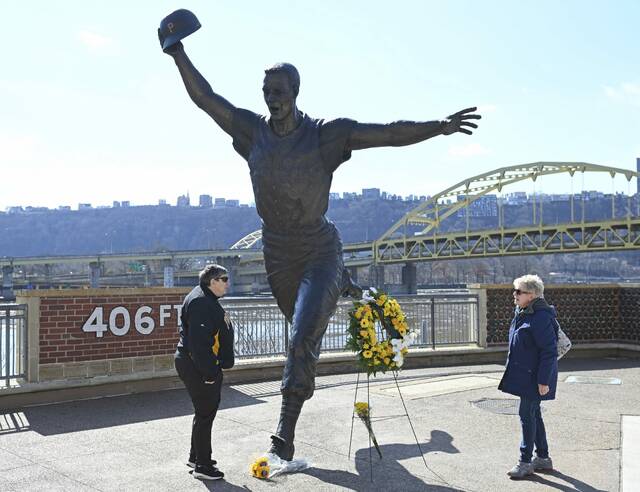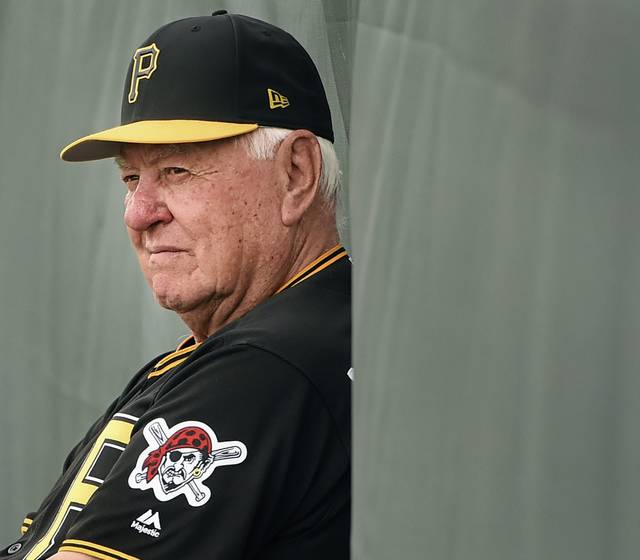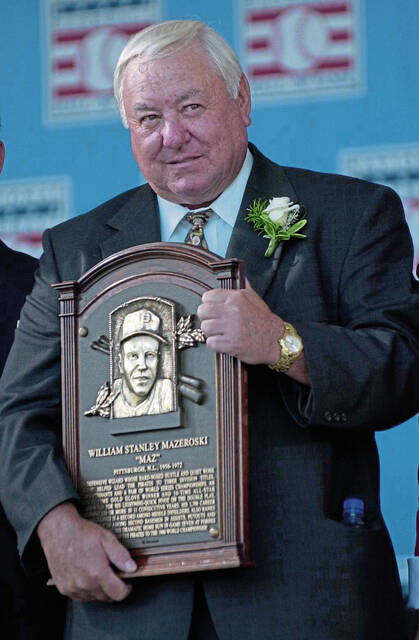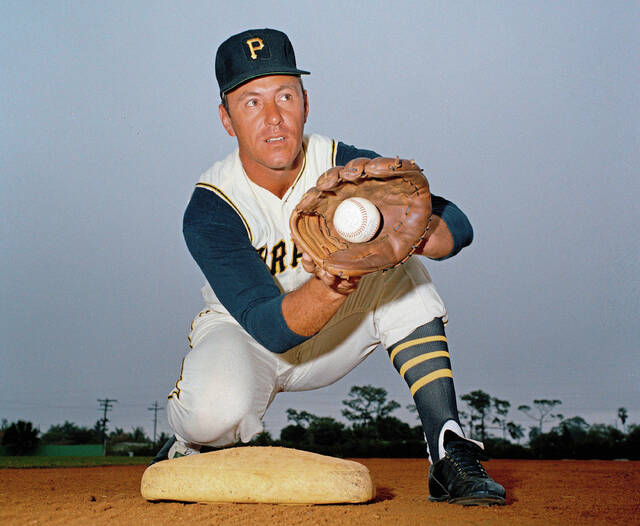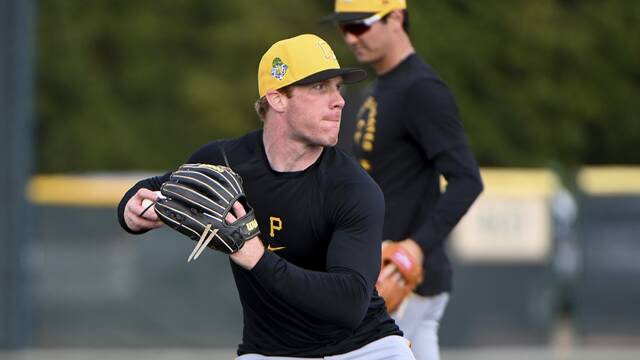When Pittsburgh Pirates officials approached Guy Junker about assuming part-time public address duties at PNC Park, he had no idea of the actual demands of the job.
“I thought you got on there and said, ‘No. 10, Bryan Reynolds, is batting.’ ”
Then, one day, he sat behind Tim DeBacco, who has held the job for 35 years — since 1988 at Three Rivers Stadium — before scaling back his workload this year.
“You have pedals to operate, music to play,” Junker said. “It’s almost like being a DJ.”
District sports fans know Junker best for his 44 years in the broadcasting business, including nearly a quarter-century as a WTAE-TV sports anchor.
Junker has covered a World Series and four Super Bowls, but he also was a big hit when he was between jobs in 2004 and 2005 and set up shop at DeHaven (Shaler) Little League games.
Now retired, Junker is one of several announcers the Pirates employ to work games, with the goal of eventually finding DeBacco’s permanent successor.
So far, it’s taken several accomplished men to replace DeBacco, including Junker, KDKA-Radio Morning Show host Larry Richert, WTAE-TV anchor Andrew Stockey and Matt Farago, a former voice of the Harlem Globetrotters who works Duquesne games.
As a younger man, Junker worked as a DJ at radio stations WMBA in Ambridge and WPQR in Uniontown. At the latter station, he read obituaries with solemn music as a backdrop.
These days, it’s not much different.
On his computer, he dials up “Glory Glory” by David Crowder for Jack Suwinski and “Rescue Story” by Zach Williams for Reynolds.
There also is a chorus of “Hallejuah” when replay review overturns a call in the Pirates’ favor.
Greg Daniels, who works alongside the announcer when he’s not at his day job as director of broadcast and video production for Pitt Athletics, said much of the organ music you hear at PNC Park was recorded at least 20 years ago by longtime organist Vince Lascheid, who died in 2009.
Players choose their walkup music carefully, some requesting two or three songs.
“I’ve been told if you get it wrong,” Stockey said, “they’ll come out of the dugout and look at you and say, ‘What happened?’ That was the most pressure-packed part of the night. I made sure I got it right.”
Stockey said he was honored to be asked to work a game, but he added the job requires laser focus and the ability to stay in your seat for long periods of time.
“You’re praying the game ends on time,” Stockey said. “If it goes extra (innings), you’re saying, ‘How long can I hold it?’ ”
The job of announcing Pirates games over the PA system does not come open often. In fact, it has been held largely by two men since 1948: DeBacco and Art McKennan. Long-time Pirates play-by-play man Greg Brown handled the duties in 1987. All three men were/are fixtures and fan favorites at Forbes Field, Three Rivers Stadium and PNC Park.
Noting the job’s exclusivity over the past 75 years, Junker said, “They are tremendous shoes to fill.”
DeBacco and McKennan became two of the most recognizable voices among area sports fans.
Said Richert: “Tim’s voice, to me, when I would go to the games, it was like comfort food for your ears.
“It was a great continuity coming from Three Rivers Stadium to PNC Park. He was one of the few things that came with it and stuck.”
One day, Junker was filling in for Myron Cope on his sports talk show, and he asked McKennan to join him as a guest.
“He said, ‘Sure, how long would you want me?’
“I said for the full hour.”
“People aren’t going to listen to me,” McKennan told him.
Sure enough, “the (phone) lines were lit up the whole hour,” Junker said.
“I got him at the end of the show to announce me batting for the Pirates.” Junker was No. 9 that night in honor of one of his favorite Pirates players, Bill Mazeroski. “I have it on tape.”
Richert’s ties to Mazeroski and Pirates history also make him a natural to call out the starting lineups. He wore No. 9 in the McCandless Little League. Born in 1960, he missed Maz’s home run by two months, but his mother was born Oct. 13 — that very day. “Mazeroski’s homer was a great birthday present, she used to say.”
DeBacco said he learned many lessons from McKennan, but the “three C’s” of announcing have stuck with him.
“To be clear, concise and correct,” he said.
When Junker told his brother, who lives in Germany, about his retirement job, he said, “You know what, Guy? That’s a bigger deal than anchoring the news on TV.’ ”
Junker gladly would keep the job for two logical reasons: He loves baseball, and he has the time.
“Baseball’s always been my favorite sport,” he said. “My wife said, ‘I thought you were retiring so you could have weekends off.’ First of all, it’s only half the weekends of the summer, not 52 weeks a year in a suit and tie in a studio. And I’m sitting outside in a golf shirt at a baseball game. I love it.”
Even if watching a game becomes your job.
“To me, the charm of baseball has always been to casually watch it,” he said. “You can’t casually watch it (as the announcer).”
“It gets to the sixth inning, I got binoculars looking at every position as they go back out on the field.
“You’re used to someone telling you who the changes are. Now, I’m the guy telling you who the changes are.”
Added Stockey: “It’s a challenge, but it’s a real honor to do it.”






